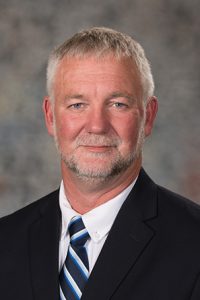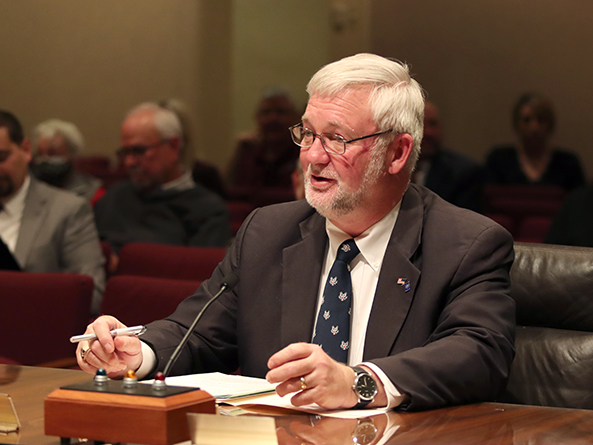Bill could delay new casino licenses
The General Affairs Committee heard testimony Feb. 13 on a bill that would extend the deadline for studies evaluating horse racing and casino gaming in Nebraska.

Under current Nebraska law, the state Racing and Gaming Commission is required to conduct a market analysis and socioeconomic impact study on horse racing and casino gaming statewide and in each county that has a licensed racetrack before any new licenses can be issued.
The stipulation was put in place last year in a continuing effort by the Legislature to implement a 2020 voter initiative that legalized all games of chance at licensed horse racing tracks.
LB311, introduced by Kearney Sen. John Lowe, would change the deadline to complete the studies from Jan. 1, 2025, to Jan. 1, 2029, although the commission could choose to complete the requirements at an earlier date.
Lowe said the extension is necessary to ensure that the state has enough time to collect quality data. The earliest estimate for a Nebraska casino to be fully operational is 2024, he said, which would give the state less than a year’s worth of data to analyze.
“That, quite simply, is not enough time to get a full and clear understanding,” Lowe said. “If we are not properly informed, we cannot ensure our decisions are the right ones.”
Nebraska Horsemen and WarHorse Casino representative Lynne McNally spoke in support of LB311. Development of the Lincoln and Omaha racetracks has been delayed significantly due to the current financial climate and the cost of materials, she said, and a number of requirements under the market analysis and impact studies cannot be completed until all of the materials have arrived and the racetracks are fully operational.
“We just need additional time,” McNally said. “The original six [racetrack] licensees would like an opportunity to get open so that you can do a market analysis that has value.”
Proponent Lance Morgan, an economic developer, estimated that it takes casinos around two years to become fully established. It is not uncommon for customer levels to fluctuate at the beginning of operations, he said, especially in a new market.
“There is a seasonality to the whole thing,” he said. “I think it’s going to take at least two years after a facility opens to know how it’s going to do.”
John Hassett, president of Aksarben Equine, Inc, testified in opposition to LB311. He said any delay in conducting the studies could result in a significant loss of potential revenue for the state. According to studies conducted in New Mexico and Iowa, Hassett said, the proposed racetracks in each respective state are projected to generate an additional $100 million in wagers, or $20 million in gaming tax for cities.
“If you push the study back five years, you’re saying ‘no’ to over $100 million in additional tax revenue just from the gaming tax,” he said. “The additional economic impact to the state would be two to three times the tax impact.”
Also speaking in opposition to the bill was chairperson of the Sarpy County Board of Commissioners, Angi Burmeister. While the board takes no official position on gambling or racing ventures, Burmeister said, it has concerns about the impact the bill would have on the county if passed.
“[LB311] encroaches on initiatives that have been approved by voters,” she said. “It limits economic development and favors the operations of some entities over others in our county.”
The committee took no immediate action on the bill.


